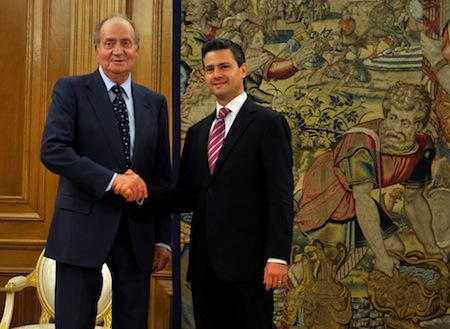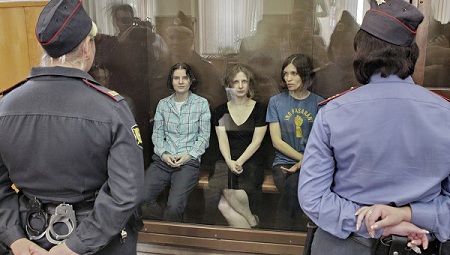Mexico’s president-elect Enrique Peña Nieto met with Spanish king Juan Carlos I (pictured above) and Spanish prime minister Mariano Rajoy.
Ontario premier Dalton McGuinty is stepping down as leader of the provincial Liberal party and as premier.
Alex Tabarrok provides some background on this year’s Nobel economics laureates, Al Roth and Lloyd Shapley.
Could Panamá adopt the euro as well as the dollar as its official currency?
Daniel Altman in Foreign Policy argues that Argentina is heading for a crisis.
EU expert Michael Geary expounds on why the European Union deserves its Nobel Peace Prize.
The Pakistan People’s Party may enter into a formal electoral alliance with the party that was once the primary vehicle boosting Pervez Musharraf.
Quartz (A new business publication from The Atlantic) looks at the push to create an economic opportunity zone in Honduras.
Catalunya president Artur Mas doubles down on Catalan independence.
In Israel, the Knesset has been dissolved and elections are expected on January 22, 2013.





